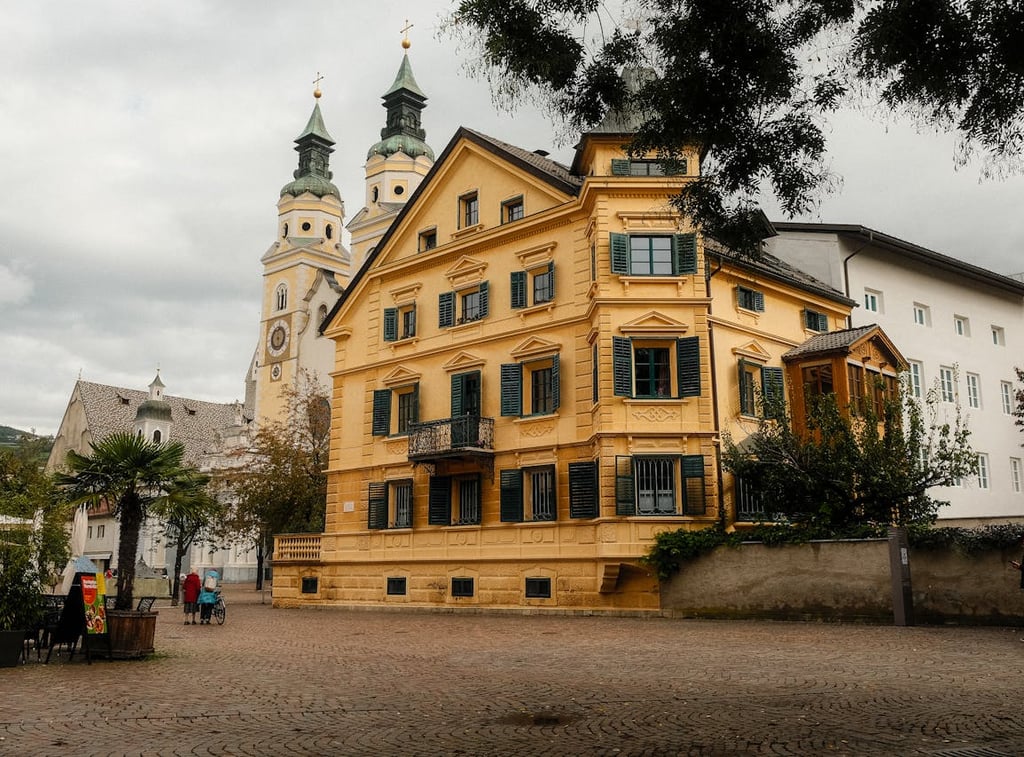Key Facts about Bressanone, Italy
Set against the stunning backdrop of the Dolomites, Bressanone blends alpine beauty with rich cultural heritage. Its Baroque cathedral, cobbled medieval streets, and vineyard-covered hills make it a charming mix of history and nature. From festive Christmas markets and alpine skiing to wine tastings at Novacella Abbey, Bressanone offers year-round appeal in the heart of South Tyrol.
9/16/20251 min read


Location
Bressanone (Brixen in German) is a historic town in South Tyrol, northern Italy, nestled in the Isarco Valley at the foot of the Dolomites.
Known for
Its medieval old town, Baroque cathedral, vineyards, and alpine scenery, as well as being one of the oldest towns in Tyrol with over 1,000 years of history.
Best Time to Visit
Spring (April–June): Alpine meadows bloom and hiking trails open.
Summer (July–August): Ideal for outdoor activities in the Dolomites.
Autumn (September–October): Vineyard harvest season and golden landscapes.
Winter (December–March): Skiing in nearby Plose ski area and festive Christmas markets.
Local Language
Italian and German (South Tyrol is bilingual). Ladin is also spoken in nearby valleys.
Currency
Euro (€).
Getting There
By train: Direct trains connect Bressanone with Bolzano, Innsbruck, and Verona.
By car: Easily accessible via the A22 Brenner motorway.
By air: Nearest airports are Bolzano (45 km), Innsbruck (85 km), and Verona (190 km).
By bus: Regional buses link Bressanone with surrounding villages and ski resorts.
Top Attractions
Bressanone Cathedral (Duomo di Bressanone): A Baroque masterpiece with frescoes.
Hofburg Palace: Former bishop’s residence turned museum with art and history exhibits.
Old Town: Cobbled streets lined with arcaded houses, shops, and cafés.
Pharmacy Museum: Showcasing centuries of medicinal history.
Plose Mountain: Skiing in winter and hiking in summer with panoramic views.
Augustinian Abbey of Neustift (Novacella): A nearby monastery famous for wine production.
Local Specialties
Speck Alto Adige: Cured ham from South Tyrol.
Knödel (dumplings): Served with broth, cheese, or speck.
Apple strudel: A regional dessert favorite.
South Tyrolean wines: Especially white wines from local vineyards.
Krapfen: Sweet pastries filled with jam or cream.
Notable Events
Christmas Market (December): One of South Tyrol’s most atmospheric markets.
Water Light Festival (spring): Art installations and light shows across the town.
Törggelen (autumn): Traditional harvest feasts with chestnuts, new wine, and regional dishes.
Summer concerts and cultural festivals celebrating Tyrolean traditions.
Contact us
Copyright © 2025. Ralnoscape All rights reserved.
Destinations
Resources


Follow us
This website uses affiliate links which may earn a commission at no additional cost to you
